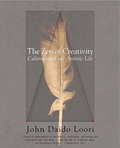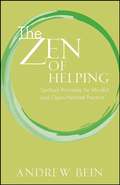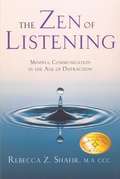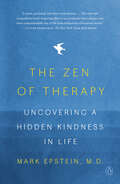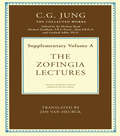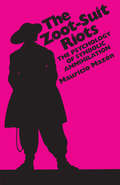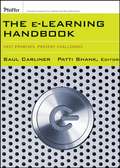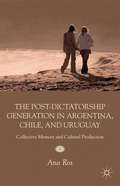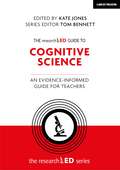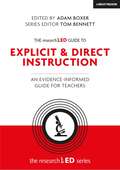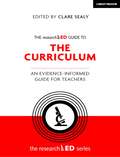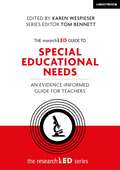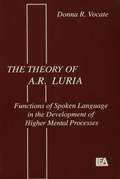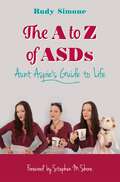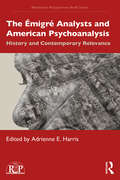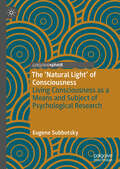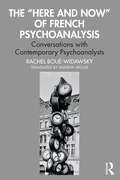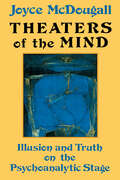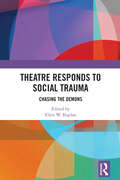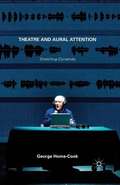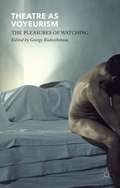- Table View
- List View
The Zen of Creativity
by John Daido LooriFor many of us, the return of Zen conjures up images of rock gardens and gently flowing waterfalls. We think of mindfulness and meditation, immersion in a state of being where meaning is found through simplicity. Zen lore has been absorbed by Western practitioners and pop culture alike, yet there is a specific area of this ancient tradition that hasn't been fully explored in the West. Now, in The Zen of Creativity, American Zen master John Daido Loori presents a book that taps the principles of the Zen arts and aesthetic as a means to unlock creativity and find freedom in the various dimensions of our existence. Loori dissolves the barriers between art and spirituality, opening up the possibility of meeting life with spontaneity, grace, and peace.Zen Buddhism is steeped in the arts. In spiritual ways, calligraphy, poetry, painting, the tea ceremony, and flower arranging can point us toward our essential, boundless nature. Brilliantly interpreting the teachings of the artless arts, Loori illuminates various elements that awaken our creativity, among them still point, the center of each moment that focuses on the tranquility within; simplicity, in which the creative process is uncluttered and unlimited, like a cloudless sky; spontaneity, a way to navigate through life without preconceptions, with a freshness in which everything becomes new; mystery, a sense of trust in the unknown; creative feedback, the systematic use of an audience to receive noncritical input about our art; art koans, exercises based on paradoxical questions that can be resolved only through artistic expression. Loori shows how these elements interpenetrate and function not only in art, but in all our endeavors.Beautifully illustrated and punctuated with poems and reflections from Loori's own spiritual journey, The Zen of Creativity presents a multilayered, bottomless source of insight into our creativity. Appealing equally to spiritual seekers, artists, and veteran Buddhist practitioners, this book is perfect for those wishing to discover new means of self-awareness and expression--and to restore equanimity and freedom amid the vicissitudes of our lives.From the Hardcover edition.
The Zen of Helping
by Andrew BeinBring compassion, self-awareness, radical acceptance, practitioner presence, and caring to the relationships you have with you patients by utilizing the advice in The Zen of Helping: Spiritual Principles for Mindful and Open-Hearted Practice. As a mental health professional, you will appreciate the vivid metaphors, case examples, personal anecdotes, quotes and poems in this book and use them as a spiritual foundation for your professional practice. Connect Zen Buddhism with your human service and address issues like dealing with your own responses to your client's trauma and pain.
The Zen of Listening: Mindful Communication in the Age of Distraction
by Rebecca Z. ShafirThis practical guide lays the inner groundwork for effective listening to improve relationships, create loyal customers and enhance memory and creativity.
The Zen of Therapy: Uncovering a Hidden Kindness in Life
by Mark EpsteinA remarkable exploration of the therapeutic relationship, Dr. Mark Epstein reflects on one year&’s worth of therapy sessions with his patients to observe how his training in Western psychotherapy and his equally long investigation into Buddhism, in tandem, led to greater awareness—for his patients, and for himself For years, Dr. Mark Epstein kept his beliefs as a Buddhist separate from his work as a psychiatrist. Content to use his training in mindfulness as a private resource, he trusted that the Buddhist influence could, and should, remain invisible. But as he became more forthcoming with his patients about his personal spiritual leanings, he was surprised to learn how many were eager to learn more. The divisions between the psychological, emotional, and the spiritual, he soon realized, were not as distinct as one might think. In The Zen of Therapy, Dr. Epstein reflects on a year&’s worth of selected sessions with his patients and observes how, in the incidental details of a given hour, his Buddhist background influences the way he works. Meditation and psychotherapy each encourage a willingness to face life's difficulties with courage that can be hard to otherwise muster, and in this cross-section of life in his office, he emphasizes how therapy, an element of Western medicine, can in fact be considered a two-person meditation. Mindfulness, too, much like a good therapist, can &“hold&” our awareness for us—and allow us to come to our senses and find inner peace. Throughout this deeply personal inquiry, one which weaves together the wisdom of two worlds, Dr. Epstein illuminates the therapy relationship as spiritual friendship, and reveals how a therapist can help patients cultivate the sense that there is something magical, something wonderful, and something to trust running through our lives, no matter how fraught they have been or might become. For when we realize how readily we have misinterpreted our selves, when we stop clinging to our falsely conceived constructs, when we touch the ground of being, we come home.
The Zofingia Lectures: Supplementary Volume A (Collected Works of C. G. Jung #1)
by C.G. JungThe Zofingia Club was a discussion group to which C.G. Jung belonged as a medical student: in 1897 he became Chairman, and gave five lectures. These have survived and are published here in a supplementary volume to the Collected Works. The lectures are of great interest to anyone concerned with Jung's early ideas, as a young medical student from a strongly Swiss Protestant background. The Lectures are: The Border Zones of Exact Science (November 1896); Some Thoughts on Psychology (May 1897); An Inaugural Address on Becoming Chairman of the Zofingia Club; Thoughts on the Nature and Value of Speculative Inquiry (Summer 1898); and Thoughts on the Interpretation of Christianity with Reference to the Theory of Albrecht Ritschl (January 1899).
The Zoot-Suit Riots: The Psychology of Symbolic Annihilation (CMAS Mexican American Monograph)
by Mauricio MazónLos Angeles, the summer of 1943. For ten days in June, Anglo servicemen and civilians clashed in the streets of the city with young Mexican Americans whose fingertip coats and pegged, draped trousers announced their rebellion. <P><P>At their height, the riots involved several thousand men and women, fighting with fists, rocks, sticks, and sometimes knives. In the end none were killed, few were seriously injured, and property damage was slight and yet, even today, the zoot-suit riots are remembered and hold emotional and symbolic significance for Mexican Americans and Anglos alike. The causes of the rioting were complex, as Mazón demonstrates in this illuminating analysis of their psychodynamics. Based in part on previously undisclosed FBI and military records, this engrossing study goes beyond sensational headlines and biased memories to provide an understanding of the zoot-suit riots in the context of both Mexican American and Anglo social history.
The e-Learning Handbook: Past Promises, Present Challenges
by Patti Shank Saul CarlinerThe e-Learning Handbook provides a critical reflection on the current state of e-learning with contributions from the world's foremost e-learning experts and best-selling authors from academe and industry, including Margaret Driscoll; Brent Wilson Lee Christopher; William Horton, L. Wayne Precht, Harvey Singh, Jim Everidge, and Jane Bozarth; Pat Brogan; Patrick Parrish; Marc J. Rosenberg and Steve Forman; Pat McGee; Philip C. Abrami, Gretchen Lowerison, Roger Cote, and Marie-Claude Lavoie; Thomas C. Reeves, Jan Herrington, and Ron Oliver; and Patrick Lambe. The book offers a comprehensive and up-to-date assessment of the technological, design, economic, evaluation, research, economic, and philosophical issues underlying e-learning. Each chapter includes a chart that summarizes the key take-away points, contains questions that are useful for guiding discussions, and offers suggestions of related links, books, papers, reports, and articles.
The meaning of things: Domestic symbols and the self
by Mihaly Csikszentmihalyi Eugene Rochberg-HaltonThis is a study of the significance of material possessions in contemporary urban life, and of the ways people carve meaning out of their domestic environment.
The post-dictatorship generation in Argentina, Chile, and Uruguay
by Ana RosThe Post-Dictatorship Generation in Argentina, Chile, and Uruguay explores how young adults in Argentina, Chile, and Uruguay make sense of the 1970s socialist projects and the ensuing years of repression in their activism, film, and literature.
The researchED Guide to Cognitive Science: An evidence-informed guide for teachers
by Kate JonesresearchED is an educator-led organisation with the goal of bridging the gap between research and practice. This accessible and punchy series, overseen by founder Tom Bennett, tackles the most important topics in education, with a range of experienced contributors exploring the latest evidence and research and how it can apply in a variety of classroom settings. In this edition, Kate Jones considers various principles from cognitive science that can be used to enhance teaching and learning, including cognitive load theory, dual coding theory, interleaving, retrieval practice and spaced practice. Kate has sourced contributions from teachers and researchers including Jade Pearce, Sarah Cottingham, Adam Boxer, Jonathan Firth, Paul A. Kirschner, Pedro De Bruyckere and Lekha Sharma. Kate Jones is a teacher and an experienced leader. She is the author of seven books and is senior associate for teaching and learning at Evidence Based Education.
The researchED Guide to Cognitive Science: An evidence-informed guide for teachers
by Kate JonesresearchED is an educator-led organisation with the goal of bridging the gap between research and practice. This accessible and punchy series, overseen by founder Tom Bennett, tackles the most important topics in education, with a range of experienced contributors exploring the latest evidence and research and how it can apply in a variety of classroom settings. In this edition, Kate Jones considers various principles from cognitive science that can be used to enhance teaching and learning, including cognitive load theory, dual coding theory, interleaving, retrieval practice and spaced practice. Kate has sourced contributions from teachers and researchers including Jade Pearce, Sarah Cottingham, Adam Boxer, Jonathan Firth, Paul A. Kirschner, Pedro De Bruyckere and Lekha Sharma. Kate Jones is a teacher and an experienced leader. She is the author of seven books and is senior associate for teaching and learning at Evidence Based Education.
The researchED Guide to Explicit and Direct Instruction: An evidence-informed guide for teachers
by Tom Bennett Adam BoxerresearchED is an educator-led organisation with the goal of bridging the gap between research and practice. This accessible and punchy series, overseen by founder Tom Bennett, tackles the most important topics in education, with a range of experienced contributors exploring the latest evidence and research and how it can apply in a variety of classroom settings. In this edition, Adam Boxer examines Direct Instruction, editing contributions from writers including: Kris Boulton; Greg Ashman; Gethyn Jones; Tom Needham; Lia Martin; Amy Coombe; Naveen Rivzi; John Blake; Sarah Barker; and Sarah Cullen.
The researchED Guide to The Curriculum: An evidence-informed guide for teachers (researchED)
by Clare SealyresearchED is an educator-led organisation with the goal of bridging the gap between research and practice. This accessible and punchy series, overseen by founder Tom Bennett, tackles the most important topics in education, with a range of experienced contributors exploring the latest evidence and research and how it can apply in a variety of classroom settings.In this edition, Adam Boxer Clare Sealy explores how schools can get the most out of a rich curriculum, editing contributions from a wide range of writers.
The researchED Guide to The Curriculum: An evidence-informed guide for teachers (researchED)
by Clare SealyresearchED is an educator-led organisation with the goal of bridging the gap between research and practice. This accessible and punchy series, overseen by founder Tom Bennett, tackles the most important topics in education, with a range of experienced contributors exploring the latest evidence and research and how it can apply in a variety of classroom settings.In this edition, Clare Sealy explores how schools can get the most out of a rich curriculum, editing contributions from a wide range of writers.
The researchED guide to Special Educational Needs: An evidence-informed guide for teachers (researchED)
by Tom Bennett Karen WespieserresearchED is an educator-led organisation with the goal of bridging the gap between research and practice. This accessible and punchy series, overseen by founder Tom Bennett, tackles the most important topics in education, with a range of experienced contributors exploring the latest evidence and research and how it can apply in a variety of classroom settings.In this edition, Karen Wespieser examines the latest research surrounding pupils with special educational needs. editing contributions from writers including: Richard Selfridge; Sabrina Hobbs; Gary Jones; Kenny Wheeler; Oliver Caviglioli; Rob Webster; Barney Aglis; and Chris Rossiter.
The researchED guide to Special Educational Needs: An evidence-informed guide for teachers (researchED)
by Tom Bennett Karen WespieserresearchED is an educator-led organisation with the goal of bridging the gap between research and practice. This accessible and punchy series, overseen by founder Tom Bennett, tackles the most important topics in education, with a range of experienced contributors exploring the latest evidence and research and how it can apply in a variety of classroom settings.In this edition, Karen Wespieser examines the latest research surrounding pupils with special educational needs. editing contributions from writers including: Richard Selfridge; Sabrina Hobbs; Gary Jones; Kenny Wheeler; Oliver Caviglioli; Rob Webster; Barney Aglis; and Chris Rossiter.
The theory of A.r. Luria: Functions of Spoken Language in the Development of Higher Mental Processes
by Donna R. VocateFirst published in 1986. This study contains an examination of Alexander Luria's translated research of over half a century on language and human psychological processes. Alexander Romanovich Luria began his career prior to the Russian Revolution, while still an enthusiastic teenager, imbued with the ideals of Russian activist humanism and burning with a desire to apply science to the improvement of his countrymen. He died a world famous professor in his country's most prestigious university more than half a century later. His published works have the subject matter included experimental studies of the relation between cognition and affect, the impact of cultural and social conditions on cognitive development, the role of genetic influences in development, mental retardation, aphasia, the restoration of function following brain lesions, and the psychophysiology of mind. More important than the variety of his efforts was their unity; the scientific goals he set himself as a young man remained those he was pursuing when he died.
The to Z of ASDs: Aunt Aspie's Guide to Life
by Rudy Simone Stephen M. ShoreThe A to Z of ASDs is a one-stop shop for adults on the autism spectrum in the form of an alphabetical guide to an array of challenging topics. From anxiety to zen meditation, compassion to self-esteem, dating to socializing (and everything in between), Aunt Aspie's wisdom and witty one-liners offer helpful advice for serious subjects. With tried-and-tested tips, Aunt Aspie shares some of the tough life lessons she's learnt so you can avoid making the same mistakes, and make informed choices on the issues that matter. Sometimes philosophical, often light-hearted and always informative, the practical information in this book will help you to navigate tricky life issues, and enable you to think through the more challenging questions facing people with ASDs.
The Émigré Analysts and American Psychoanalysis: History and Contemporary Relevance (Relational Perspectives Book Series)
by Adrienne E. HarrisThis book explores the impact of migration, including its causes, upon the key ideas and directions of psychoanalytic theory and practice from the twentieth century until today. Having originated with a conference called "Émigré Analysts," developed through the Sandor Ferenczi Center at the New School for Social Research, this collection encompasses a wide array of often personal insights into the historical effects of exile and migration upon psychoanalysis. Divided into three sections, the book first attends to the political crises that affected the exile of psychoanalysts after the Second World War, tracing their journeys from Eastern Europe to the United States; secondly, the rise of antisemitism and the impact of the Holocaust upon these analysts is closely examined; and finally, this book attends to the protection and safety of analysts forced into exile in our contemporary moment with reference to the work being done by existing national and international psychoanalytic institutions. As an engaging and thoroughly detailed account of the influence of exile upon American psychoanalysis, this book will be of as much interest to scholars of history and twentieth-century culture as to psychoanalysts and psychoanalytic psychotherapists in training and in practice.
The ‘Natural Light’ of Consciousness: Living Consciousness as a Means and Subject of Psychological Research
by Eugene SubbotskyThe book is about living consciousness: private subjective experience, which conforms to the laws of magic. The concept of living consciousness is employed to clarify disputable concepts such as natural psychological functions and artificial intelligence, to explore how living consciousness is reflected in visual art and fiction writings, and to show how living consciousness could be influenced in education to promote creative thinking, memory and differentiating perception.
The “Here and Now” of French Psychoanalysis: Conversations with Contemporary Psychoanalysts
by Rachel Boué-WidawskyThe “Here and Now” of French Psychoanalysis provides an overview of the living psychoanalytic landscape in France through the voice of experienced psychoanalysts who continue to transform the legacy of Freud, Lacan and others in their publications and clinical practice.Rachel Boué-Widawsky interviews a wide range of practitioners, underscoring the specificities of French psychoanalysis and exploring how the French psychoanalytic community has responded theoretically and clinically to the global crisis of the COVID-19 pandemic and racial and gender issues. Mimicking the process of psychoanalytic dialogue, the interview format allows for a lively and engaging discussion of each practitioner’s theoretical background and their clinical approach. Boué-Widawsky includes leading individuals in the field as well as representatives of key institutions including La Maison de Solenn and the Centre Jean-Favreau.The “Here and Now” of French Psychoanalysis presents an accessible introduction to this distinctive psychoanalytic landscape. It will be essential reading for psychoanalysts in practice and in training and for academics and students of psychoanalytic studies.
Theaters Of The Mind: Illusion And Truth On The Psychoanalytic Stage
by Joyce McDougallUsing the theatre as a central metaphor, this text provides a flexible framework to explore the psychic realities of the characters within us. Case studies underscore how different kinds of patients construct particular fantasies as a response to the pain of earlier life scenarios.
Theatre Responds to Social Trauma: Chasing the Demons (Routledge Series in Equity, Diversity, and Inclusion in Theatre and Performance)
by Ellen W. KaplanThis book is a collection of chapters by playwrights, directors, devisers, scholars, and educators whose praxis involves representing, theorizing, and performing social trauma.Chapters explore how psychic catastrophes and ruptures are often embedded in social systems of oppression and forged in zones of conflict within and across national borders. Through multiple lenses and diverse approaches, the authors examine the connections between collective trauma, social identity, and personal struggle. We look at the generational transmission of trauma, socially induced pathologies, and societal re-inscriptions of trauma, from mass incarceration to war-induced psychoses, from gendered violence through racist practices. Collective trauma may shape, protect, and preserve group identity, promoting a sense of cohesion and meaning, even as it shakes individuals through pain. Engaging with communities under significant stress through artistic practice offers a path towards reconstructing the meaning(s) of social trauma, making sense of the past, understanding the present, and re-visioning the future.The chapters combine theoretical and practical work, exploring the conceptual foundations and the artists’ processes as they interrogate the intersections of personal grief and communal mourning, through drama, poetry, and embodied performance.
Theatre and Aural Attention
by George Home-CookTheatre and Aural Attention investigates what it is to attend theatre by means of listening. Focusing on four core aural phenomena in theatre - noise, designed sound, silence, and immersion - George Home-Cook concludes that theatrical listening involves paying attention to atmospheres.
Theatre as Voyeurism
by George RodosthenousTheatre as Voyeurism usefully (re)defines the notion of voyeurism as an 'exchange' between performers and audience members in contemporary theatre and performance. Pleasure (erotic and/or aesthetic) is here privileged as a crucial factor in the way meaning is produced in the encounter with a theatrical work. George Rodosthenous has drawn together an intriguing selection of authors and the ten chapters make a significant contribution to the overarching critical project of assessing the value of approaching theatre through – and as – voyeurism. The authors focus on a range of case studies including specific theatre artists such as Jan Fabre, Romeo Castellucci, Ann Liv Young, Olivier Dubois and Punchdrunk. This edited volume is therefore relevant to prospective readers interested in various aspects of visual experience in the theatre today.
